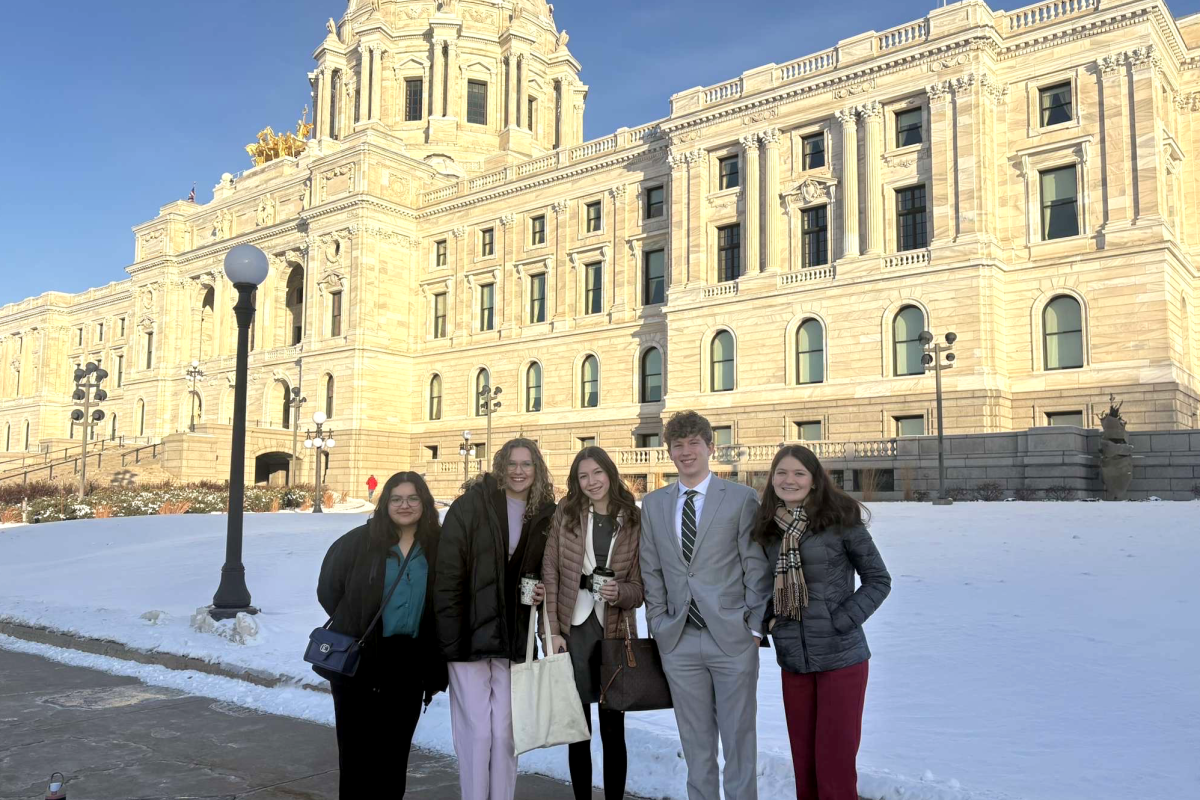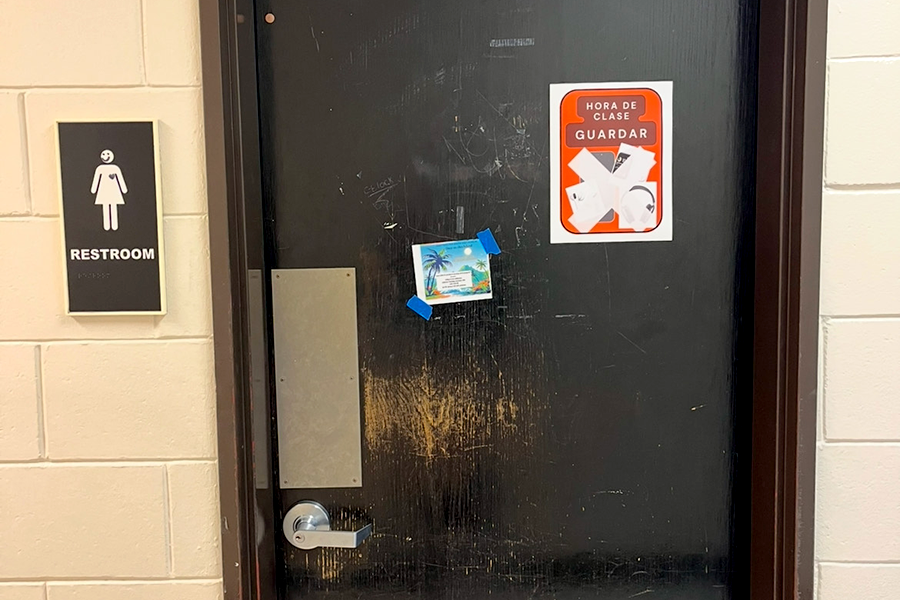Over the summer, President Barack Obama signed an executive order preventing the U.S. Department of Homeland Security (DHS) from deporting certain undocumented immigrants that would be eligible for the DREAM (Development, Relief and Education for Alien Minors) Act via a process called “deferred action.” This new policy will affect millions of youth across the country, including a significant population of students here at South.
Obama’s plan is related to the DREAM Act, which has been stalled in congress since it was introduced in 2001. It is a piece of legislation designed to help young immigrant students brought to the United States before the age of 16 by providing them with an opportunity to go to college, enlist in the military and eventually, create a path to citizenship. Due to the gridlock in congress on this issue, Obama issued an executive order on June 15, 2012, that came to be known as the Deferred Action plan. Students eligible for the DREAM Act would be granted temporary permission to live in the United States for two years and would be able to receive a work permit.
The plan went into effect on August 15, 2012, and already students are applying to be accepted to the program. “I think it’s a really great idea, really good opportunity for students who came as children undocumented,” said Spanish teacher Luz Arias-Ortiz, “it’s an opportunity for them to study and work and grow as professionals.”
This is the ultimate goal of the plan, to encourage immigrant youth to continue their education and find successful careers in the United States. The requirements, however, are tough, and not all immigrant youth are eligible. They must have come to the U.S. before the age of 16, not have legal documents, have lived continuously in the U.S. for at least five years, be between the ages of 15 and 30, have a clean criminal record and either be in school, have completed high school or be an honorably discharged veteran of the U.S. Armed Services. The requirements in order to receive the benefits of this plan are many, and Arias-Ortiz stated that some people may be “discouraged because of the obstacles.”
In speaking with some of her students, they described the immense challenges of achieving deferred action status, from hiring a lawyer and other professional services to getting high school transcripts. Costs for these things can pile up, and the Minneapolis Public Schools district is trying to help. Superintendent Bernedia Johnson recently sent out a memo to all of the district’s staff asking them to be helpful in the complicated process, announced that the district will waive the $15 fee for providing transcripts to students applying for deferred action status, and endorsed the plan on behalf of the district.
“It is very important that we work proactively to help our students with the documentation they will need to help them succeed,” she said recently in a newsletter. “This new decision from President Barack Obama’s administration offers our students hope. Rather than being fearful of deportation, they will be inspired to stay in school, excel in their studies and truly reach their full potential,” she added, “we all deserve a path to success by which we can reach our dreams for ourselves and for our children.” Additionally, Johnson stated that the Minneapolis Public Schools district is anticipating a higher retention rate and increases in enrollment in General Educational Development (GED) and alternative learning programs offered by the district due to the plan, all changes welcomed by the district. “I truly believe that education is the civil rights issue of our time. Strongly supporting Deferred Action for Childhood Arrivals will only enhance the learning and growth of our students and MPS is proud to support this effort,” she continued.
Another challenge of the plan for students who are eligible is the fact that, according to Arias-Ortiz, it is dangerous to identify oneself as undocumented. Senior Gabriela Jaime-Gomez, a member of UNIDOS, said that she is not aware of any South students that would be affected by the plan, partly because immigration status is not an issue that is outwardly discussed. “There could be students, even students in UNIDOS,” she stated. “We don’t really let that be known, like ‘oh, I wasn’t born here’ or ‘I don’t have papers.’” She continued by stating that openly acknowledging themselves as undocumented could change how they are viewed by peers or teachers at school. “I feel like many were scared, and it didn’t really talk about it,” Jaime-Gomez added. “They’re scared to trust the act.”
Part of this fear is due to the large amount of information one must volunteer to apply for the plan. In this way, immigrants that were “living under the rock,” as Jaime-Gomez put it, and went unnoticed, are putting themselves out there and identifying themselves as an illegal immigrant. Because the deferred action plan is an executive order and not a legislative act, it could be repealed at any time, whether by the Obama administration or, if Mitt Romney wins the presidential election, the Romney administration. For this reason, Jaime-Gomez believes that many people are scared to volunteer their information.
“It’s not really secure, so people are scared of trusting it,” she said. The only way to prevent this risk is for the DREAM Act to pass in congress. Arias-Ortiz believes the reason for this opposition, which has primarily been from Republicans, is due to the misconception that it would reward people for entering the country illegally. “People have different ways of thinking,” she commented, “[it may be seen as] an easy way of path to citizenship or rewarding people who don’t follow the rules, [that it’s] not giving the right message.”
Senior Diana Hinojosa-Medina has some difficulty seeing why people oppose the plan, but believes that if they were in the shoes of an undocumented student, they would see the appeal. “They should consider it. We all came from different parts of the world,” she stated, “if they were in that situation, I guess they would understand it but since they’re not, they don’t see the point of view.”
Another criticism of the legislation is that it would enable immigrants to take American jobs, something Arias-Ortiz does not agree with. Rather, she feels that an educated workforce is exactly what the country needs at this point in our history. “If we didn’t have equal opportunities, [there would be] no opportunity to go to college. We need professionals, we need to think of our future,” she stated, “[we] need to make sure [undocumented students] get same opportunities, so they are prepared for an educated society.”
Though Arias-Ortiz does not know exactly how many students in the South community will apply for the program, she is certain that the program will affect the students at South. “It will impact the community, there’s a large student population of Hispanic background,” she said, adding that she believes it will also affect students’ motivation to succeed. “Students currently in high school will be able to go to college and see what they are doing in a more meaningful way.”
Hinojosa-Medina has a friend who is applying to the program, and she believes that the program would benefit her immensely by motivating her to achieve in school, and realize that it is possible to realize her goals. “She’s going to have better opportunities to make her dreams come true and she will have a chance to continue on with her education,” she stated. Arias-Ortiz continued by stating that she doesn’t “know how it feels for a student that knows already that he or she won’t be able to go to college or get a job as a professional,” and hopes that the plan, along with MPS’ support, will provide students with a “good opportunity for students to get going and have a better picture of the future.”
But above all, Arias-Ortiz hopes that the Obama administration’s plan will enable students to give back to the community that they have been a part of since coming to the United States and be more like an average resident of the country. “[The plan] gives them a way to serve in the community and do something positive for themselves and their families,” she said, “they will have a chance to come out of the shadows and be somebody, like a normal resident.”






